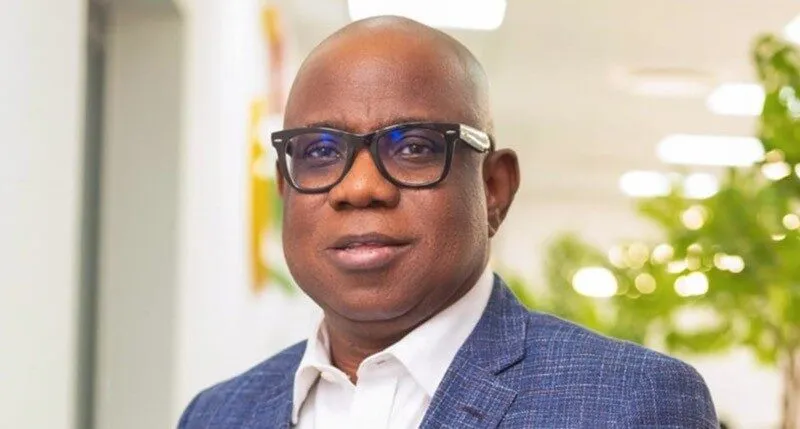President Tinubu Appoints Bayo Ojulari as New NNPC CEO

In a significant development for Nigeria’s oil and gas industry, President Bola Ahmed Tinubu has appointed Bayo Ojulari as the new Group Chief Executive Officer (CEO) of the Nigerian National Petroleum Corporation (NNPC) Limited. This appointment marks a new chapter in the country’s efforts to revitalize its oil sector and increase production, with Ojulari taking over the reins from Mele Kyari, the outgoing CEO. The appointment is effective immediately, signaling the beginning of a new era at NNPC.
The move comes at a critical time when the Nigerian oil sector faces numerous challenges, including fluctuating global oil prices, production constraints, and modernization. The president’s decision to bring in Bayo Ojulari, a highly experienced industry leader with a strong track record, is seen as a strategic step toward addressing these challenges and ensuring the continued growth of Nigeria’s oil sector.
Bayo Ojulari: A Proven Leader in the Oil Industry
Bayo Ojulari brings decades of experience to the role of NNPC CEO, having held several high-ranking positions in the oil and gas industry. Before his appointment, Ojulari was a senior executive at Shell, one of the world’s largest oil companies. His tenure at Shell gave him invaluable insight into global oil operations, energy transition strategies, and the complexities of managing large-scale energy projects.
Ojulari’s appointment is a step toward bringing more global expertise and efficiency to NNPC. His experience with Shell will undoubtedly help the state-owned oil corporation navigate the complexities of Nigeria’s oil sector and expand its operations. His leadership will also improve NNPC’s operational efficiency and increase its contributions to the Nigerian economy.
Why Bayo Ojulari’s Appointment Matters
The appointment of Bayo Ojulari as the new NNPC CEO is expected to benefit Nigeria’s oil industry. One key area that Ojulari is likely to focus on is modernizing NNPC’s operations. The Nigerian oil sector has long struggled with inefficiencies, outdated infrastructure, and a lack of investment in technology. Under Ojulari’s leadership, NNPC is expected to prioritize innovation, technological advancement, and improved management practices.
Furthermore, Ojulari’s extensive international experience gives him the tools to enhance Nigeria’s position in the global oil market. He is expected to foster stronger relationships with international oil companies and investors, making it easier for Nigeria to attract foreign direct investment and expand its oil production capacity.
The Challenges Ahead for NNPC
Despite the optimism surrounding Bayo Ojulari’s appointment, the new CEO will face numerous challenges in his new role. Nigeria’s oil production has been plagued by pipeline vandalism, theft, and environmental degradation. Addressing these challenges will require strong leadership and effective collaboration with the government, oil companies, and local communities.
Nigeria’s oil industry has also faced declining production levels due to aging infrastructure and lack of investment. Ojulari must work diligently to modernize NNPC’s facilities, implement the best oil extraction and refining practices, and introduce reforms to enhance production. This will require significant financial investments and the ability to secure funding from both domestic and international sources.
Another challenge for Ojulari will be navigating the complex political landscape of Nigeria’s oil sector. Oil is a significant source of revenue for the country, and managing these resources is often a politically charged issue. Ensuring transparency and accountability at NNPC will be a key priority for the new CEO, who must work closely with the government, regulatory bodies, and industry stakeholders to maintain trust and foster cooperation.
Mele Kyari’s Legacy and the Transition
Mele Kyari, the former CEO of NNPC, leaves behind a mixed legacy. During his tenure, Kyari oversaw a series of reforms to modernize NNPC and increase its transparency in operations. Under his leadership, NNPC made strides in corporate governance and reduced organizational corruption. However, Nigeria’s oil production faced challenges during Kyari’s time, including delays in key projects and a lack of significant output growth.
The transition from Kyari to Ojulari is expected to bring a fresh approach to these ongoing issues. While Kyari’s tenure was marked by attempts to reform NNPC, Ojulari’s appointment signals the government’s desire to bring in new leadership with more international expertise and a focus on expanding production capacity. The hope is that Ojulari can build on Kyari’s reforms while introducing innovative strategies to drive growth in Nigeria’s oil sector.
The Role of NNPC in Nigeria’s Economy
NNPC plays a central role in Nigeria’s economy, with oil exports accounting for a significant portion of the country’s revenue. As the state-owned oil corporation, NNPC is responsible for exploring, producing, and refining crude oil and managing the country’s extensive pipeline infrastructure. NNPC also oversees the distribution of oil products to both domestic and international markets.
Given NNPC’s importance in the Nigerian economy, the new CEO’s decisions will have far-reaching implications for the country’s economic development. The oil sector is a major contributor to Nigeria’s GDP, and any improvements in NNPC’s operations are likely to impact the country’s overall economic growth positively. By increasing production, attracting investment, and enhancing operational efficiency, Bayo Ojulari can potentially affect Nigeria’s energy sector.
President Tinubu’s Strategy for Revitalizing the Oil Sector
President Bola Tinubu’s decision to appoint Bayo Ojulari as the new NNPC CEO is part of a broader strategy to revitalize Nigeria’s oil sector. The Tinubu administration has prioritized economic diversification and the development of key sectors such as energy, agriculture, and manufacturing. By bringing in an experienced leader like Ojulari, the president is signaling a commitment to strengthening Nigeria’s oil and gas industry as a critical driver of economic growth.
In his inaugural address, Tinubu emphasized the need for greater efficiency in the oil sector and pledged to tackle the challenges of underproduction, corruption, and mismanagement. With Ojulari at the helm, the president hopes to see substantial improvements in NNPC’s ability to meet production targets, reduce operational costs, and boost overall revenue generation for the country.
Bayo Ojulari’s appointment as the new NNPC CEO is a significant development for Nigeria’s oil sector. With his extensive experience in the global oil industry, Ojulari is poised to lead NNPC through a period of transformation, addressing the challenges that have long hindered the sector’s growth. His leadership will ensure that NNPC can contribute more effectively to Nigeria’s economic development and position the country as a major player in the global oil market.
As Nigeria looks to revitalize its oil sector, all eyes will be on Ojulari and his ability to deliver on the ambitious goals set by the government. His appointment signals a renewed focus on efficiency, transparency, and growth, and Nigerians are hopeful that under his leadership, the oil industry will thrive again.
About the Author
DURU SUNNY-GEORGE
Administrator
Duru Sunny George is a Media Practitioner | Journalist | Cinematographer | Photographer | Lecturer - popularly known as DSG, is a versatile media entrepreneur and educator. He is the Founder & CEO of DSG STUDIOS, DSG HERALD NEWS, and DSG RADIO, leading platforms in journalism, photography, cinematography, and digital broadcasting.



